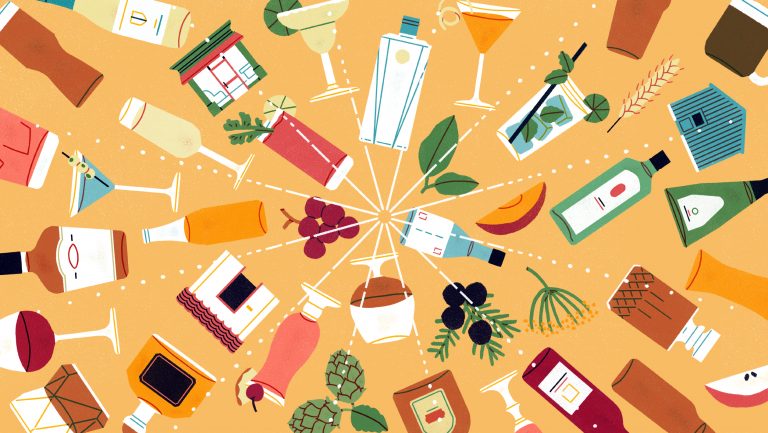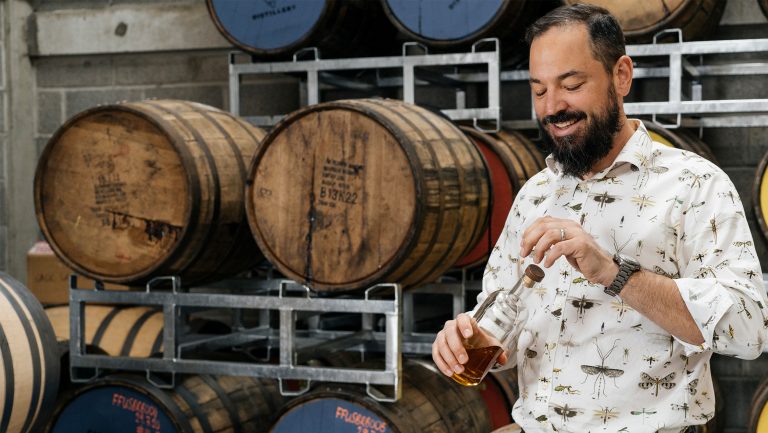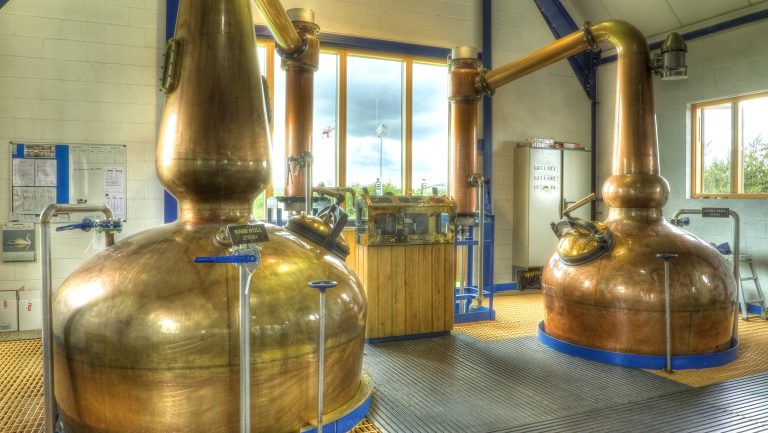Just over a decade ago, few would have bet on the success of English wine. Even fewer, probably, would have expected the country to develop a vibrant whisky industry. But from 2019 to 2023, the volume of whisky produced by English distilleries is forecasted to grow 189 percent, according to the newly formed English Whisky Guild, and English whiskies are starting to gain international recognition.
England has indeed produced whisky in the past, albeit not to the same extent as neighboring Scotland and Ireland. By the early 1900s, however, the last surviving maker closed down and the island was left whiskyless throughout most of the 20th century. And yet today, there are over 30 operating whisky distilleries at various stages of production and an ever-growing number of newcomers awaiting their first nectar to reach maturity.
“With our brewing and distilling tradition here in England, you can’t help but believe that ours can be a wonderful addition to the world of whisky,” says Stephen Russell, the founder of Kent-based Copper Rivet Distillery.

Don’t miss the latest drinks industry news and insights. Sign up for our award-winning Daily Dispatch newsletter—delivered to your inbox every week.
Many English whisky distilleries were established on the back of a broader, countrywide craft distilling boom fueled by the 2008 repeal of the Sales of Spirits Act, commonly known as the Gin Act 1751. The market was flooded with new gin brands, while whisky production—which requires larger investments and a minimum of three years for a batch to enter the market—took a little longer to show its potential.
Finding the English Style
English distillers approach whisky-making with a marked avant-garde mindset, equally inspired by neighboring, authoritative whisky cultures—the Scottish and the Irish—as by the experimental nature of New World spirits makers.
“We have no real, recent tradition, meaning we have no real legacy to hold us back,” says Russell. “There is a clear desire not to try to be ‘Scottish whisky south of the border,’ but instead to be interesting and employ innovative techniques, use best practices from around the world (in our case, especially the United States), and do whatever it takes to create whisky that tastes amazing.”
English whisky distilleries do indeed paint on a blank canvas. In fact, some reject the canvas itself: Copper Rivet’s latest expression, for instance, is an unusual blend of pot- and column-distilled spirit whose grain bill involves Belgravia barley malt, Claire wheat, and Arantes rye.

While embracing traditional techniques and recipes, English distillers tend to focus on flavor research. Bristol-based Circumstance Distillery specializes in characterful, one-off grain-based spirits; its inaugural whisky release—due in the fall—tastes promising. “Our first whisky comes from a single cask, just 250 bottles,” says Liam Hirt, the founder of Circumstance. “For the next 10 years or so all whisky releases will be single casks.” The expression is made with a blend of malted and unmalted barley, fermented with French saison beer yeast.
Circumstance’s countless experiments often draw inspiration from Bristol’s vibrant craft beer scene. Wheat-based wash is aptly fermented with Bavarian wheat beer yeast, while a mix of saison and mead yeast is used on a rye-based mash. The team has been experimenting with British and Irish ale yeasts, too. “The mead yeast gets the floral notes out of the rye, while the saison yeast produces a very flavorsome base beer, with lots of citrus notes,” says Circumstance distiller Andrew Osborne.
Thinking Big
As the industry matures, English whiskies are increasingly available on international markets, with a growing number reaching U.S. shores, too. Industry pioneer The English Whisky Company—whose 15 years of activity make it the country’s oldest operating whisky distillery—is currently available in the U.S. through South Carolina-based Total Beverage Solutions, and Circumstance is planning to enter the American market once its debut whisky sees the light in September.
In March this year, a crowdfunding campaign raised $1.6 million for Cumbria-based The Lakes Distillery––their whisky has won a handful of international awards––to increase its spirit-making capacity and to plan its U.S. launch for later this year. Meanwhile, Cotswolds Distillery, which is already available in a dozen U.S. states, forecasts to grow its American market by 300 percent by the end of 2022. Earlier this year, the distillery revealed it will soon be commissioning a new, larger site. With a yearly potential of 500,000 liters of pure alcohol, not only will the expansion allow Cotswolds to considerably up its exports, it will grant the distillery the status of England’s largest whisky producer, too.
Crossing the pond is also in the pipeline for Copper Rivet, with an initial focus on Texas and Florida. “Our production is about five times what it was in our first year (2016), and in three years I expect it to be three times more than today,” says Russell. “It’s really hard to reflect on what’s happening beyond these distillery walls, but my guess is that our growth probably mirrors the industry as a whole.”

To support the industry’s rapid development, the country’s leading producers teamed up to form the English Whisky Guild in May of this year, and submitted an application to legally define a geographical indication (GI) for English whisky. The proposal is currently being reviewed by the U.K.’s Department for Environment, Food and Rural Affairs.
While the proposed GI shows a clear Irish and Scottish stylistic influence, the suggested criteria are intended to reflect the industry’s innovative nature—by allowing maturation to undergo in any wood type, for instance—and clearly promotes its principal unique selling point by requiring grains to be of U.K. origin.
The process is expected to move forward by the end of the summer and the group of producers believes it will help the English industry rival more established whisky regions. “English whisky has been around for a while; several of my fellow producers are coming up to their 10th birthday,” says Andrew Nelstrop, the chair of the English Whisky Guild and owner of The English Whisky Company. “Obviously it’s quite young compared to our northern neighbors, but it is no longer a fledgling industry. Production rates are growing fast. We have got momentum.”
Dr. Jacopo Mazzeo is a U.K.-based freelance drinks journalist, consultant, and photographer. He contributes to leading trade and consumer publications including Decanter, Wine Enthusiast, Whisky Magazine, and Good Beer Hunting. Jacopo consults on consumer trends and marketing strategies, is a former sommelier, and judges international wine, beer, and spirits competitions. Before he embraced full-time journalism, he studied musicology at the University of Bologna and took a PhD at the University of Southampton. Follow Jacopo on Instagram @jacopomazzeophoto


